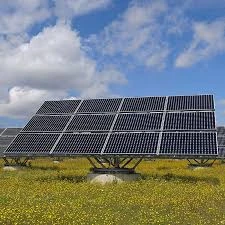Understanding the Dimensions and Efficiency of a 1kW Solar Panel System
Understanding the Size of a 1 kW Solar Panel
In the quest for renewable energy solutions, solar power stands out as one of the most accessible and versatile options. Solar panels, also known as photovoltaic (PV) modules, are essential components of solar energy systems, converting sunlight into electricity. When considering integrating solar energy into your home or business, one of the critical factors to evaluate is the size of the solar panel system required. This article aims to explore the size of a 1 kW solar panel system and its implications for energy use, installation space, and efficiency.
What Does 1 kW Mean for Solar Panels?
The term 1 kW refers to the power output capability of a solar panel system under standard testing conditions, usually measured at peak sunlight levels. Specifically, 1 kW can generate roughly 4 to 5 kilowatt-hours (kWh) of energy per day, depending on geographical location and climatic factors. This figure can significantly vary based on the average sunlight hours received in a day and the efficiency of the solar panels deployed.
Dimensions of a 1 kW Solar Panel System
Typically, individual solar panels range in output from 250 Watts to 400 Watts. For a 1 kW solar system, you would generally require about 3 to 4 panels, depending on their wattage. The size of a standard solar panel is approximately 65 inches by 39 inches (1.65 meters by 1 meter), which roughly equates to about 17.6 square feet (1.63 square meters) of rooftop space per panel.
Therefore, if you are looking to install a 1 kW system using typical 300-Watt panels, you would need about 3.33 panels, meaning you will need at least 53 to 60 square feet of space for installation. It is essential to consider that these measurements account for optimal conditions; shading, panel orientation, and tilt can all affect the overall efficiency and required space.
Factors Influencing Space Requirements
While the size of a 1 kW solar panel system provides a basic guideline, several factors can influence actual space requirements
1. Panel Efficiency Higher efficiency panels produce more energy in a smaller area. For example, premium panels can offer efficiencies above 20%, reducing the number of panels needed for a specific power output.
size of a 1kw solar panel

2. Installation Type Whether installing on a rooftop or as a ground-mounted system will impact space requirements. Ground-mounted panels can be more spread out, while rooftop installations can often make more efficient use of available space.
3. Orientation and Tilt The angle and direction in which panels are installed can greatly influence their solar gain. Panels facing true south (in the Northern Hemisphere) typically receive the most sunlight, potentially affecting how many panels you might need.
Benefits of a 1 kW Solar Panel System
Opting for a 1 kW solar panel system has several advantages
- Cost-Effective A smaller system requires a lower initial investment and is a great way for homeowners to start harnessing solar energy without overwhelming upfront costs.
- Scalability If your energy needs increase, you can always expand your system by adding more panels without having to replace existing infrastructure.
- Environmental Impact Lowering your reliance on fossil fuels by switching to solar energy reduces greenhouse gas emissions and contributes to a more sustainable future.
Conclusion
In conclusion, the size of a 1 kW solar panel system typically requires about 53 to 60 square feet of space, depending on various factors such as panel efficiency and local climate. Understanding these dimensions and considerations is vital when planning for solar energy integration in your home or business. As technology advances and the push for sustainability increases, solar power will continue to play a crucial role in the energy landscape, providing a cleaner alternative to traditional power sources. By investing in solar, you are not only making a financially smart decision but also contributing to a healthier planet.
-
Unlocking Energy Freedom with the Off Grid Solar InverterNewsJun.06,2025
-
Unlock More Solar Power with a High-Efficiency Bifacial Solar PanelNewsJun.06,2025
-
Power Your Future with High-Efficiency Monocrystalline Solar PanelsNewsJun.06,2025
-
Next-Gen Solar Power Starts with Micro Solar InvertersNewsJun.06,2025
-
Harnessing Peak Efficiency with the On Grid Solar InverterNewsJun.06,2025
-
Discover Unmatched Efficiency with the Latest String Solar InverterNewsJun.06,2025







